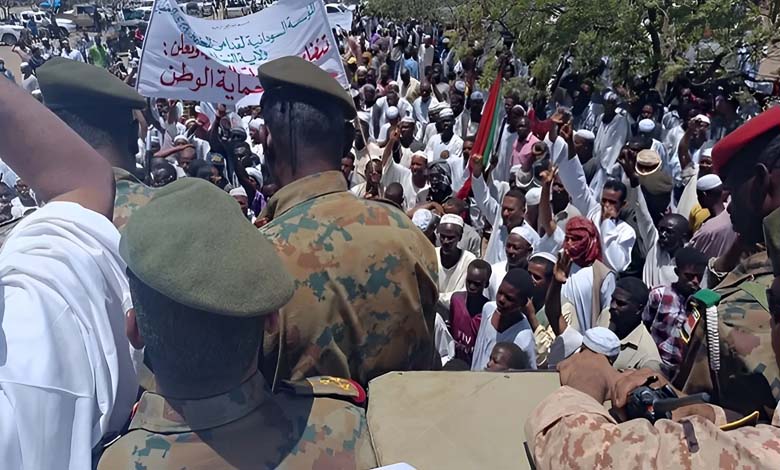Escalation of Tensions Between Sudanese Army Leaders and Islamist Militias: What Are the Causes?

Sudanese military sources have reported a growing rift between the leadership of the Sudanese army and its allied Islamist militias that fight alongside it, following widespread violations committed during recent battles in Khartoum and Darfur.
-
The Muslim Brotherhood in Sudan Seeks to Return to the Scene Through International Conferences… Details
-
Amidst the Crimes of the Muslim Brotherhood in Sudan… The ICC Demands the Disclosure of Bashir and Haroun’s Whereabouts
Internal opposition within the Sudanese army has reignited against the growing influence of the Muslim Brotherhood, especially after human rights reports accused Brotherhood-affiliated militias of committing horrific violations in Khartoum and Darfur, including summary executions and the abuse of detainees. This could signal the return of “mysterious assassinations,” which previously reflected the depth of internal divisions.
According to Sudanese press reports, tensions among army leaders have recently intensified due to the rising influence of the Islamic movement that supports army commander Abdel Fattah al-Burhan. Many are concerned that this growing influence may spark public outrage similar to the uprisings seen during the final years of ousted President Omar Hassan al-Bashir’s rule.
-
The Muslim Brotherhood’s Congratulations to the Sudanese Army… A Move That Reveals the Group’s Role in Fueling the Conflict
-
Power Sharing Deals… New Maneuvers by the Muslim Brotherhood in Sudan
Bashir’s Islamist regime was met with widespread public protests in 2018, which hastened his removal in 2020 — a fate feared by al-Burhan, who is accused by his opponents within the army of yielding to Islamist expansion, even facilitating their return to both the military and political power.
Military circles have warned of the danger of “chaos” erupting in the barracks, as extremist slogans have been observed, pointing to the presence of Islamist elements loyal to the deposed president Bashir.
-
Khartoum’s Liberation Exposes Alliances: Muslim Brotherhood’s Congratulatory Message to the Sudanese Army Raises Questions
-
The Muslim Brotherhood’s Congratulations to the Sudanese Army for the Liberation of Khartoum: A Reading of Political and Military Dimensions
The rise in these tensions reflects a deep ideological fracture within the military doctrine, now sharply divided between a radical Islamist faction infiltrating army camps and secular and nationalist forces vying for control, all while lacking any unified political or military vision.
Observers believe that the internal disputes within the Sudanese army, alongside the ongoing war, indicate that the power struggle that began two years ago between two distinct components has evolved into a deeper conflict being steered behind the scenes by the Muslim Brotherhood, which has entrenched itself within the army’s command structure, putting it at risk of internal armed conflict.
-
Under the Muslim Brotherhood’s Sponsorship Purges Cracks and Serious Violations within the Sudanese Army
-
Sudanese Tribes Warn of the Threat Posed by the Muslim Brotherhood Militias… How Did They Respond?
The Islamic movement is accused of seizing key decision-making positions within the army and directing operations outside the formal chain of command. Circulating audio leaks of military orders issued by the Al-Baraa brigades, a faction affiliated with the Islamists, without coordination with the army’s general command, have intensified demands for a “cleansing” of the army from Islamist influence.
These audio leaks, shared widely on social media, exposed the extent of the organizational deterioration within the Sudanese army, showing a multiplicity of command centers and insubordination among some officers, especially in the regions of Omdurman and Shendi.












